#caesar catalina
Explore tagged Tumblr posts
Text

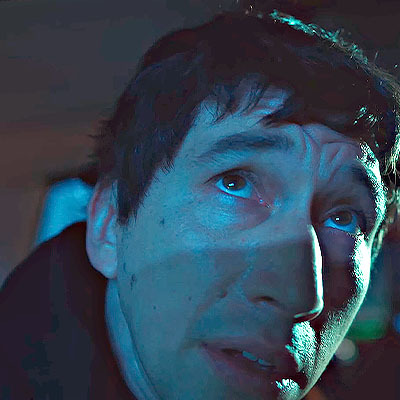
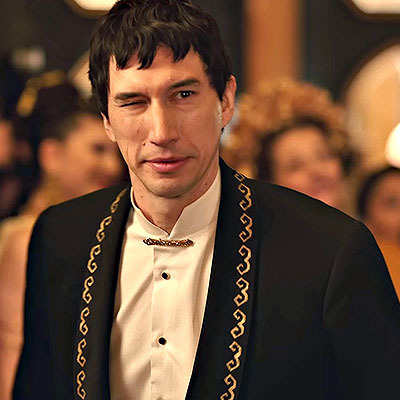
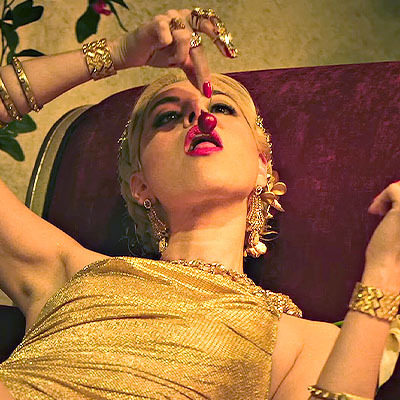
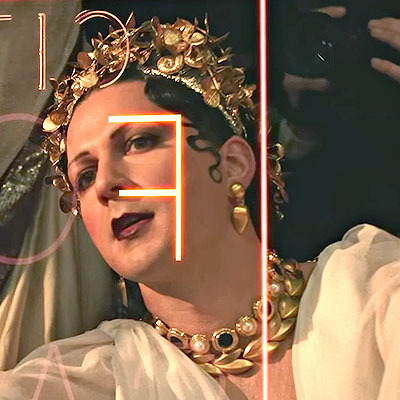
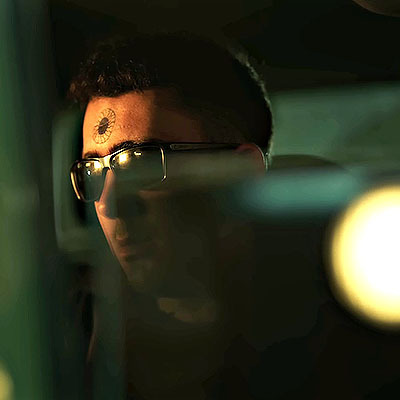

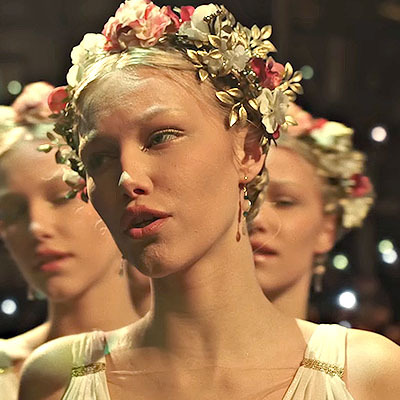

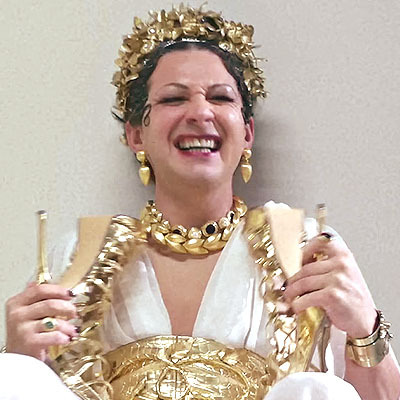





Megalopolis, 2024
#megalopolis#megalopolis icons#nathalie emmanuel icons#julia cicero icons#shia labeouf icons#clodio pulcher icons#giancarlo esposito icons#mayor franklyn cicero icons#adam driver icons#caesar catalina icons#aubrey plaza icons#wow platinum icons#laurence fishburne icons#fundi romaine icons#coppola megalopolis#icons#caesar catalina#megalopolis 2024#adam driver#francis ford coppola megalopolis#francis ford coppola movies#francis ford coppola#film#film icons#films icons#movies icons#cinema icons#filmes icons#filmedit#moviedit
51 notes
·
View notes
Text
'Megalopolis' - A Beautiful Mess, and I Liked It
So, help me, I liked “Megalopolis.” Francis Ford Coppola’s passion project which has been decades in the making. It was finally unleashed unto the world at large, and the reviews have been incredibly polarizing as audiences were either enthralled or baffled by what they witnessed. it was pretty much considered a box office bomb in advance as studios had no idea of how to promote it, and it…

View On WordPress
#2024 Movies#Adam Driver#American Zoetrope#Aubrey Plaza#Barry Hirsch#Caesar Film LLC#Catalina#Catilinarian conspiracy#Cicero#Drama#Dustin Hoffman#Dystopia#Earnest#Epic#Francis Ford Coppola#Fred Roos#Giancarlo Esposito#Grace VanderWaal#Jason Schwartzman#Jon Voight#kathryn hunter#Laurence Fishburne#Lionsgate#Megalopolis#Metropolis#Michael Bederman#Mihai Mălaimare Jr.#Nathalie Emmanuel#New Rome#New York City
2 notes
·
View notes
Note
the riverdale-ism of megalopolis is actually crazyyyy. i admire it because i think an entirely referential film that is like 50% shakespeare's julius caesar 20% atlas shrugged 30% thomas milton is something between a masterpiece and a nightmare. i see why they didn't release it after 9/11
Cesar Catalina used Megalon to make all those golden walkways material they used to make this movie is called Riverdalon. I see the same bones in them let me rant:
Riverdale, if I am going to be pretentious, which I am💖, is motivated by a love for everything about Americana and media in general that is so powerful it sublimates everything into itself and transcends coherence. it cannot ever leave the teen drama box so there is nothing stopping it from playing toys with genre and reference week after week like oh we did Twin Peaks in the first season we’re doing the godfather next week silence of the lambs a little bit extended secret history arc but the B plot is gonna be uncut gems maybe some saving Private Ryan if we have time. All the musical episodes are weird deep cuts. It subsumes so much into itself that the only thing the show ends up being about is itself, the craft of cinema in microcosm in a shitty teen drama. It insists upon itself and its lack of coherence like a sort of capital kaleidescope to the point where it’s clearer than it is actually motivated by a single distinct vision and I think it’s so beautiful.
Megalopolis has the same complete lack of subtlety, completely incoherent dialogue, and kalaidescopic nature that somehow does coalesce into a single vision as Riverdale, but I think the emotion motivating it is not love or reverence for past art or tradition it is trying sooo hard to be future-facing. But it also just kind of has nothing to say while trying to say everything. Much like Riverdale. I think the emotion motivating it is definitely a little bit more hubris and I love hubris, but for a movie that is clearly driven really fundamentally by like hubris and arrogance it’s not weird ENOUGH. It’s juvenile isn’t-this-deep in like every respect but I do appreciate how hard everyone is acting. That’s also very Riverdalian. It also has a women problem. I also love how gold everything is why not. 
#Riverdale had no plan. megalopolis was nothing but plan I fear#apparently Cesar and megalopolis is Cesar Cataline and not Julius Caesar and he’s like a completely different guy
38 notes
·
View notes
Text
On 'Megalopolis'
I have seen 'Megalopolis: A Fable'. My assessment in one word is that it's 'striking'. It's a striking film - which is not necessarily to say that it is a 'good' film. It may be an 'important' film, insofar as it's likely the last film by the creator of 'The Godfather', 'The Conversation' and 'Apocalypse Now', and self-funded.
It's also a very strange film. In almost every scene there's something bizarre - not necessarily in the sense of worldbuilding but in terms of the directorial choices made.
For some reason 'Megalopolis' was not marketed as a work of alternate history, which I think could have brought in more attention, but a 'fable', with a heavy-handed opening monologue about the similarities between the modern USA and Rome. It's ostensibly set in the 21st century in 'New Rome', a modern city with Roman affectations - though it's also mentioned at times that it's still in the United States of America and that Elvis existed in this reality.
The best analogy I can make is that it feels like one of those adaptations to film of a Shakespearean play but set in the modern day, where much of the dialogue has been updated but the main speeches have been left in the original language (indeed, sections of dialogue from Hamlet and The Tempest appear unmodified); but without the source play.
'Megalopolis' is - though few critics seem to be crediting this - a loose adaptation of the life of Lucius Sergius Catilina, somewhat annealed with Julius Caesar (furnishing protagonist Cesar Catalina as played by Adam Driver). The real Catalina is a rival of Cicero (here Mayor Cicero as played by Giancarlo Esposito), prosecuted for an affair with a vestal virgin by Publius Clodius Pulcher - here Clodius Pulcher as played by Shia Labeouf - and accused of killing his wife in order to marry Aurelia Orestilla, the daughter of the consol (who has been merged with Cicero to create Julia Cicero, the Mayor's daughter, as played by Nathalie Emmanuel). All this happens in the film.
The real historical Catalina, of course, was the mastermind behind the Catalinarian Conspiracy, an attempt to overthrow Cicero and Hybrida and seize power. In the first of many changes, Coppola changes this to make Clodius the leader of the plot and Cesar Catalina innocent. While the historical Crassus uncovered the plot and told the Senate, Jon Voight's Hamilton Crassus is betrayed by his unfaithful trophy wife (clearly a reference to Tertulla) and Clodius in a 'Dallas' spoof sideplot, but eventually gets the upper hand and backs Catalina with his wealth.
At this point we should address the elephant in the room. In 'Megalopolis: A Fable', Cesar Catalina is an architect who wishes to build a new shining city, the titular Megapolis, using a revolutionary new metal he has developed, Megalon. This makes startling sense when you realise Coppola has long dreamed of adapting Ayn Rand's 'The Fountainhead'. Cesar is clearly intended to be a mix of Howard Roark and Henry Rearden from Rand's 'Atlas Shrugged', a visionary steelmaker who has developed 'Rearden Metal'.
However, Megalon may have a dark secret - Mayor Cicero says it's rumoured he used his dead wife's body to manufacture the metal. While the introduction of this rumour is cack-handed (Cicero just whispers it to Cesar at an event), it's at least an intriguing take based on a real historical rumour. This in combination with the source material - a scheming politician who launches a coup - might make you wonder if Coppola is playing Sympathy for the Devil here and will reveal Cesar as a villain protagonist (as far as I can tell, he doesn't intend this).
Cesar also has the ability to stop time. Very literally; he can talk to Time (capital T) and tell it to do things. The first scene of the film - which may be Cesar attempting suicide or testing this power for the same time - sees Driver's character on the roof of the Chrysler Building, teetering on the edge. As he begins to tip forward, he intones 'Time: stop!' and finds his body hovering in mid-air, allowing him to cautiously wuxia-float his way back onto the building (remember this).
This may all sound rather Jojo's Bizarre Adventure, but never fear - this power, which seems like it should be the metaphorical crux of the entire film (timestop as a metaphor for stagnation in a dying empire?), is largely irrelevant other than leading Julia to investigate him and then join his agency.
Oh yes, that's another thing that radically alters the dynamic from a hypothetical Francis Ford Coppola's Fountainhead; Cesar isn't a private architect but the head of a government agency, the Design Authority. We aren't told how he came into this role but he begins the film with his own staff, security, and lavish office, which makes him feel like much less of an underdog.
Cesar's Design Authority is pulling down slum buildings to replace them with his utopian Megalon developments - the plot can't quite decide whether he's doing this inside the law, but the result seems to be people forced onto the street - a clear nod, you might think, towards gentrification, although later plot points make this murkier.
Julia sees Cesar using his time stop ability during a demolition, seemingly to judge whether the collapse is safe (though what he would be able to do if it wasn't is unclear). Frustratingly we never see what this looks like to 'normal' people; Julia is the only person other than him to be able to manipulate time and we only ever see it from one of their perspectives. More on this later.
Esposito's Mayor Cicero is initially introduced as a hollow populist, who wants to use the demolished plots of land for crowd-pleasing moneymakers such as a casino. He shows off a slick model of the proposed pleasure palace, which seems to get the approval of the gathered journalists. Cesar, meanwhile, gives a philosophical speech urging grander ambitions ("Don't let the present get in the way of forever!") and offers to go through his design documents. I'm uncertain whether we are supposed to understand this to be what it looks like - that Cesar does not have people skills and finds it hard to communicate his genius - because Driver is given all sorts of quippy Tony Stark-like lines and business as he arrives to the meeting and otherwise reads as charming and personable.
This scene includes one of the most sophomoric film-school student lines in the film. When Cicero menacingly brings up Cesar's wife's death, he says: "Well, as you were the prosecutor in that case, you know I was found not guilty."
At this point Cesar is involved with Plaza's journalist femme fatale (name, I kid you not, 'Wow Platinum') but - I'm unsure whether we actually see them break up on screen - she falls for billionaire Crassus and Cesar becomes involved with Julia who, after mentioning she saw him stop time, receives work with his agency (much to her father's chagrin).
Before it's fully established that she has fallen for him, she follows him and sees him buy flowers and visit what I think is supposed to be his wife's home; we see him place them by her bedside and stroke her hair - she seems to be comatose rather than dead, but when Julia sees the same scene Cesar is alone, seemingly hallucinating. Julia somehow knows Cesar is hallucinating his wife and whispers "He still loves her!". This is one of many elements of 'Megalopolis' that make me think that despite being a self-funded auteur project, the narrative was muddled in the edit and a more coherent through-line must have existed at some point. If this scene came after Julia and Cesar were an item, it might have some emotional weight.
The chapters of the films are introduced with narration by Lawrence Fishburne, serving as Cesar's faithful chauffeur (an element that, perhaps, lets on that Coppola has been pitching this film for fifty years). The 'Bread and Circuses' chapter sees a lavish wedding for Crassus and Wow (sic.), with a Ben Hur-style chariot race and Pro Wrestling-themed gladiators. The effeminate villain Clodius appears, crossdressing after the style of the historical Caligula.
In a scene clearly intended to take aim at religious right virginity pledges, a 'vestal virgin' pop star is used to raise money by encouraging the wealthy to financially 'support' her pledge of virginity. However, as the bidding reaches 100 billion, Clodius bribes the AV technician to display on the jumbotron (!) a sex tape of the 'virgin' and Cesar, resulting in a scandal.
In a sequence clearly inspired by Fritz Lang's 'Metropolis', an intoxicated Cesar - presumably having seen the jumbotron but it's not entirely clear - hallucinates his arms moving in the shape of a clock. I initially thought this whole sequence (intercut with a gymnastic display which appears to go wrong) was intended to represent the aghast Cesar's powers going out of control and causing mayhem, but that doesn't seem to be the case. Instead his limo is stopped by police and he is arrested for corrupting a minor and statutory rape - a genuinely bold choice of peril for a protagonist and one I don't think would fly in any major studio production post-Harvey Weinstein!
Julia is oddly certain he must be innocent - again, the two are not clearly an item at this point; he's her boss - and investigates, finding that VanderWaal's vestal virgin's birth certificate was fabricated and she was in fact born out of the country six years earlier, meaning she was 23 at the time of the tape, not 17. Interestingly, in the newspaper montage showing Cesar being cleared, a voiceover also mentions the footage was found to be edited and fradulent, begging the question of why the birth certificate was even important - I can only think this VO was added after principal photography and originally the character did sleep with a girl he believed to be underage.
Again, an odd scene order - after being cleared, Julia finds a distraught Cesar on top of an under-construction building (what this is is unclear as none of his Megalon buildings use girders like this but it's a repeated location - put a pin in that). He has lost his confidence in his ability to command time and she coaxes him into regaining his mojo; he is able to stop time again with the formula 'For the sake of Julia, Time, please stop'. Again, this feels like it should have more narrative weight than it does; he 'loses' his powers for all of one scene and it doesn't impact his career or plans. It also feels like it should have come before the formal resolution of his legal woes. The hero losing his supernatural powers at the start of the second act and needing either to regain his confidence to use them or learning he must not rely on them is a well-worn superhero trope and it almost feels like Coppola felt compelled to include it since he had a super-powered protagonist but didn't understand or care to put it to any more significant use.
I forget where the scene takes place where he meets Wow again; she attempts to seduce him and offers him Crassus's bank, which she says she will steal away from him. He rebuffs her and in one of the worst pieces of professionally produced cinema I have ever seen, we fade to and from a closeup of the car's wheel driving over the coat he gives her. It wasn't even necessary to cut in - the coat is clearly visible and the audience expects the action from the way she throws it down - and the cut is executed horribly; it genuinely feels like a mistake, like a misplaced clip in Final Cut Pro.
Shortly thereafter, Cesar is approached by a young boy who asks him to sign an autograph. Utterly bafflingly, Nathalie Emmanuel is given the line of dialogue 'Cesar would never say no to a child'. This is a couple of scenes after he is accused of statutory rape; if it was meant to be delivered with wry humour, no-one told Emmanuel. In any case, the child shoots him in the face, having been revealed as an agent of Clodius.
We then get an abstract montage of what may be Cesar's dying hallucinations, with the repeated refrain (I think I remember this correctly:) "I will not give death dominion over my thoughts". It would not be unreasonable for one of the following to happen:
a.) Somehow Cesar is able to not just stop time but reverse it. We see a flower shrinking back into a bud and I was fully expecting to see the clip of his blood flowing on the street reversing. He has regained his powers and now has new incredible mastery. Or:
b.) The damage to his brain means Cesar cannot use his powers. Julia must step in and make the leap of faith - Cesar is injured now but was not so in the past. 'Time: Heal all wounds!').
Neither of these happen.
Instead, we see snippets of what seems to be a mostly cut scene where Julia and the scientist character replace the missing portions of Cesar's skull and brain with Megalon. This seems to be a triumphant return and we see him awake, bandaged but cogent.
In the next scenes, a slurring and seemingly brain-damaged, still bandaged Cesar who repeatedly shouts "No, no, no!" for some reason forces his way into Crassus's mansion to find out why the billionaire's bank has frozen his accounts. This is revealed to be a scheme of Wow at the behest of Clodius. She once again attempts to seduce Cesar (even after he reveals his horrific transparent gold skull-face) but is forced to stop when Crassus arrives.
After this, Wow turns her seductive attentions to Lebeouf's Clodius and persuades him to get Voight's character to sign over control of the bank in a rather shoddy bathhouse scene that I think is intended to show Crassus having a heart attack and aides rushing to his rescue, but which I initially believed showed him being stabbed by Clodius's accomplices. When Wow seduces Clodius she cuts his hair (something Crassus told Clodius to do) in silhouette which should clue you in she's playing the role of Delilah.
At this point we should mention that Clodius has his own sub-plot where he has been repeatedly seen trying to build cred among the mob protesting Cesar's project. The mob is, I would guess, the ultimate antagonist of the film, and Coppola is strikingly loose with his real-world targets here. The mob resembles Black Lives Matter and anti-gentrification protesters and Clodius says they are 'immigrants' whose vote can be bought; they carry SPQR flags that resemble the hammer and sickle; their slogans suggest far-left sympathies; but Clodius gives a literal stump speech on a tree stump which has been cut into the shape of a swastika (real subtle there) and his minion now has a forehead tattoo of the Black Sun, a real-world fascist symbol (I think he also said something along the lines of 'We will make New Rome great again', though I may be misremembering). You might be tempted to think that, given his historical intrigue with Rand's Objectivism, Coppola views the masses as generically 'collectivist', subsuming fascism and communism. If so, Cataline is a bizarre choice for a hero, as in the real world it was he who whipped up a mob to attack the Roman Senate, and Caesar who led the 'populists', while Cicero favoured the optimates (aristocracy). We'll talk more later about Cesar Catalina's philosophy, such as it is, in 'Megalopolis'.
As New Rome collapses in riots, Crassus, who is revealed to be less senile than previously suggested, confronts his wife and nephew in an absolutely hilarious scene where he lifts his suggestively tented blanket to reveal a tiny bow and arrow, which he uses to kill first Wow in a comedic spout of blood and then repeatedly plink a fleeing Clodius in the backside with arrows; each time it cuts back to Crassus he has another arrow (barely) drawn with no indication where they are coming from, like a YouTube Poop. I think, generously, this was meant to be slapstick comedy, even if the context is very dark (aging billionaire murders his cheating wife).
Mayor Cicero semi-reconciles with his daughter (who has since had Cesar's child) on the train as they are evacuated for their safety.
In the climax - I feel sure it's the climax - of the movie, the mob gathers at the gates of Megalopolis, but an apparently fully healed Cesar appears, projected on the golden leaves of his utopian city, and addresses them. The speech is every bit as dense, philosophical, and frankly unrousing as his opening debate, but this time it wins the crowd around and suddenly they are no longer the collectivist menace but the upstanding majority who are now delighted to live in his city as the gates open.
Crassus declares he is throwing his entire wealth (and 'the patents to Megalon', which I guess he somehow acquired when the bank froze Cesar's funds) behind the project, so all's well that ends well? The mob turn on Clodius when they find out 'he owns the bank' (except that no, we've just established he doesn't) and shockingly string him and his henchman up, Mussolini-style; while the camera cuts away quickly it's pretty clear they have stoned him to death.
As New Year dawns, Cesar persuades Julia to try stopping time herself for the first time. She does so, but surprisingly *everyone* freezes except the baby, who has clearly also inherited the power. The End. Someone in the row behind me chuckled.
To be clear, this lends the plot a degree of cogency you simply don't get in the theatre. It's clear to me much of the movie ended up on the cutting room floor - there are fully acted, costumed scenes with different dialogue that appear in the facets of the Megalon crystal as Cesar works but are not in the movie. I think the order of scenes may have been dramatically changed and possibly the ending altered, which is why Driver's character appears fully healed without explanation but only as a projection in the final speech.
The central conceit, time stop, is not used except indirectly as something one character sees to make her intrigued in Cesar, and later as evidence that he has his confidence back after a single scene where he can't use it. Losing it doesn't set back his plans and we barely get a sense of how he uses it in his work normally. An architect who literally has all the time in the world is an intriguing concept and one could easily imagine eyecatching scenes where buildings seem to erect themselves in a blink of an eye, or where from the perspective of a normal human he flashes around a room, drawing up plans and blueprints at seemingly superhuman speed. Indeed, I was fully expecting at least one scene where Driver appears where he shouldn't be, revealing he has been listening in on a conversation or confronting someone in a secure location, because he can stop time to get into any location or do anything.
But we don't see this - we don't even, unless I missed it, get a line like 'Cesar always finishes his projects ahead of schedule - what's his secret?'. Time stop also doesn't work consistently; the first time we see it, Cesar's own body is part of the timestop; he can seemingly think in normal time but his body is suspended on the brink of falling. But later, it's clear that people who use timestop move normally and are affected by gravity (when Julia drops her purse on the girder it slows and stops when it gets a certain distance from her).
The secondary conceit, Megalon, is barely defined. It's a miracle metal that allows things like flowing moving walkways and roofs that fold in like flower petals when it rains. It also bonds with living cells and is eventually replaced with healthy tissue. It sometimes reflects his wife's face, and in the medical montage I think they put some of the wife's hair into the implant, which suggests to me Megalon *is* partially a ghoulish necromantic substance that harnesses his wife's unquiet spirit - but incredibly this isn't addressed in the final narrative other than a dreamlike sequence where he hears his wife telling him 'Go to her', apparently permission for him to move on. Again, it feels like a late-era MCU production cut to hell by studio interference - except there's no studio.
There's also an ambiguous line where Mayor Cicero seems to admit *he*, not Cesar, killed her - I think the intent of this line is he is willing to publicly admit he tampered with evidence to convict Cesar if Cesar breaks up with his daughter. Cesar later tells Julia his wife killed herself because of his obsessive focus on work and we have no reason to doubt him.
It's all such a weird missed opportunity - clearly you're meant to initially wonder if Cesar did kill his wife. There's a blink-and-you'll-miss-it newspaper headline that says the death was a 'Hitchcockian mystery' - which suggests a locked-room murder. Now, who can enter a room, kill someone, and leave to have an alibi elsewhere, all in the blink of an eye? Surely, surely this was intended to be explored at some point; less Chekhov's gun being visible over the fireplace and more being shoved up your nostril in the first act.
The tertiary conceit - New Rome itself - is intriguing as a stylistic choice. It's overtly a fable so it would seem churlish to ask how this Roman city-state exists in a world where both the USA (of which it's seemingly a part) and USSR existed. The limits of the budget are visible in the lack of stylisation in some areas (extras' costumes, cars, offices) but I didn't find it too offensive. I did notice that the architecture we see associated with Cesar early in the film is clearly Art Deco, but the Megalon structures later in the film are postmodern sweeping leaf-life structures, as though Coppola changed his mind about what the future looks like some time in the fifty years since first conceiving the movie.
The central conflict of the film is thornier. You might assume that Cicero represents populist, 'need'-based politics ("People need help now," the mayor says, objecting to Cesar's grand vision of a better city), while Cesar is a Randian rugged individualist, except that's not quite what we're shown in the final cut.
The Mayor's character isn't consistent - by the midway point he's become a law and order figure while the sleazy collectivist mantle has been passed to Clodius and the anti-gentrification rioters. And Cesar being a government official mixes the message on 'lone genius architect' - where we do get an insight into the philosophy of Cesar Catalina, it's also not especially Randian. The character talks repeatedly about the need for 'debate' - that even starting to talk about what we should do, or agreeing that we should talk, is already utopia. He responds to the Mayor by suggesting that 'people's futures' are as important as their present. I also think at one point he says civilisation was a mistake, which is a startling remark from a protagonist but which seems to be something Coppola has floated in real life (seemingly believing there was a utopian matriarchy before history). So at best I think you can argue he takes a broadly long-term-self-interest rationalist view and is being contrasted with the short-term populist Mayor and the short-term instant-gratification rioters.
He also briefly (as in, a single line) advocates for debt nullification, which was a position of the real Cataline, but which doesn't really seem to gel with anything else in the movie - we never get the sense that Cesar hates Crassus lending money and aren't shown the effects of usury on the people.
The cast of actors - including John Voight, and DB Sweeney who starred in the ill-fated Atlas Shrugged adaptation - makes me think it was sold as a rightish-wing endeavour, but I can't imagine the apparent both-sidesism on display will satiate red-blooded culture war types.
Certain aspects of the film also felt quite dated - the use of sapphism to shock and titilate (and the curious line where Cesar, challenged by a gossip columnist to confirm he prefers women, insists 'Everyone prefers women. Even women prefer women'); contrasted with the effete, crossdressing villain Clodius.
What's most striking (I said it was the salient word) about 'Megalopolis' is how much potential each element has relative to how it's actually used on-screen. Some of this is the tight budget constraints necessitated by Coppola burning through his own money to fund the film - the SFX were generally decent though I noticed at least one truly shoddy effect where characters walk into an idyllic field which is clearly a separate plate, and their bodies are sliding left-to-right as though walking on ice.
How might I re-imagine 'Megalopolis'? Keeping most of the beats and trying to refine the message rather than changing it:
- Cesar as a private architect, not a government agency. Put Crassus in the role of a Gail Wynand; a wealthy man and potential patron.
- Cesar has built a reputation as the man who always has time - he finishes every project ahead of schedule and under budget; his demolitions always proceed flawlessly and his staff have no idea how he does it.
- The Mayor champions sweetheart deals with contractors for cheap, trashy buildings that will fall down in thirty years (this might have been in the script at some point as Cesar calls him a 'slum lord') while Cesar wants to use Megalon to create an Art Deco utopian development.
- Julia sees Cesar stop time and he offers her a job. He demonstrates how when his staff see him flash around at super-speed he is really doing all the laborious work of drawing up plans in real time, totally alone as he previously had no-one who could do what he did.
- The press casts doubt on Megalon, with the unions pushing for proven materials like concrete and steel. A ghastly rumour emerges that Megalon contains human DNA. Cesar gives a speech, asking what would happen if the first architects using steel had faced the same resistance. What about fire?
- Julia proves her worth by securing a contract for Cesar to redevelop a large slum after a devastating fire, elbowing out her father's friends who want to use the same cheap cladding that caused the fire in the first place (anticipates and deflects viewer criticism about safety).
- Romance develops with Julia and Cesar. Scenes where they go out into the city and stop time together. Julia is pregnant.
- Clodius undermines Cesar by throwing red tape in his way. Cesar appears in his home and confronts him, showing a sinister edge, but ultimately leaves. Clodius uses this to deduce Cesar's time powers.
- Crassus's wedding is a huge event with (as in the film), chariot races and gladiatorial games. Cesar, Mayor Cicero, Julia and Clodius all attend.
- Instead of the vestal virgin scandal, Cesar is publicly accused of killing his first wife and the shock causes him to lose his control over time, causing chaos throughout the city. Unable to continue his work he locks himself away in his office.
- Time is frozen throughout the city; Cesar is subconsciously holding everything together so it doesn't change or decay (timestop as metaphor for stagnation!). Time only passes for objects if someone is holding them and if you drop them they freeze in place. If someone dies they freeze in place. We see how the city is surviving in this odd apocalypse.
- Julia investigates with a more murder-mystery focus - it's a locked-room murder and Cesar has an ironclad alibi, but a time manipulator could easily make it happen.
- She keeps digging however and a financial motive emerges for Clodius. She confronts Crassus who admits he covered up for his nephew; everything that looked supernatural about the death was possible with enough money. Facing disgrace he throws himself from the top of his skyscraper and his body freezes on the point of impact.
- Julia finds Cesar who tells her he did use his wife's body to create Megalon but insists that he found her dead. Why? Because love holds everything together (we're leaning into the cheese; amazingly I don't think they try to explain this in the real movie). Having expiated himself, Time once again hears his entreaties and begins flowing normally ("You can move on").
- Julia and Cesar brave the streets to reach the Mayor to clear his name and a mugger shoots Cesar. However, with his new mastery, he is able with a 'kick start' from Julia to turn back time and repair his own damaged brain.
- Mayor Cicero is reconciled to his daughter and meets his granddaughter for the first time.
- Clodius learns of his uncle's death and, blaming Cesar, whips up a mob to storm the construction site, but in a flash of an eye the city is completed before them as Cesar's expanded powers let him include entire construction crews in his timestop.
- Cesar emerges and gives a speech; reflecting that every one of them wanted someone else to provide for them but were ready to use violence to take what wasn't theirs, trusting there existed someone who was willing to be robbed; the city is complete, but none of them will live in it. 'Others, who saw and believed, will come, and they are welcome'.
- Clodius and his most devoted followers attack but the city itself folds in to protect Cesar, showing his wife's spirit in the metal recognises her murderer, and Clodius sinks into the ground.
- New Year's, magic baby, yada yada.
22 notes
·
View notes
Text
Megalopolis ending spoilers
Okay so I think the most...The Most moment for me was when Jon Voight's character, who was almost tricked into resigning as President of the Bank but who then had a heart attack and was deposed as President of the Bank, is lying in bed, and Aubrey Plaza's character, who is named Wow Platinum in a movie where everyone else's name is Roman bc AMERICA IS LIKE ROME, well, also Wow Platinum seduced someone in a sex scene that is honestly indescribable into doing this plan, anyway, Wow Platinum comes in and Jon Voight's character goes "I have a boner because she is sexy". And the boner is VERY prominent but no one questions it because it was earlier established that Jon Voight has an enormous hog. Anyway he says this in the dry monotone everyone in the movie except Aubrey Plaza delivers every line in and no one questions it.
Then he pulls back the covers to reveal that his boner is actually a CROSSBOW. And he uses it to kill Wow Platinum and shoot his son in the ass.
This is more or less the end of the movie's conflict. It's kind of surprising how quickly it ends? After this everyone who was previously against Adam Driver's character just kind of goes "I am going to give all of my money to him" in a montage. And he gives a speech and then he builds his perfect utopian city and everything is good now and I guess he's now God-Emperor. We see people gliding away on the only Caesar Catalina invention we see in detail, which is a moving walkway that will take you to A Park in less than three minutes. But the city is gold and alive now and has vertical towers people live on so it's better now. Nobody reacts much though bc again, the only character who doesn't react to everything with a dull, flat tone of voice is Wow Platinum, who is still dead, and lying on the floor, Cock Arrow still in her chest
Don't get that idea that Crazy Bullshit like that happening all the time makes it fun though, I was just bored bc again, everything's so flat. Not just the acting, but the cinematography is really flat, too, it's hard to believe Francis Ford Coppola made it. The movie does play with some interesting ideas about Creation and the like at times, but so much of it is just communicated by people citing quotes and saying Great Ideas at each other.
If one scene sums up the movie, it's one where they're driving in the rain and we see a statue of Lady Justice falling apart in the rain & breaking into pieces. A bit heavy handed but I get it. But then the scene goes on showing us more statues falling apart and. I get it, actually?
I never would've anticipated a movie this cornball earnest from Francis Ford Coppola of all people. Like look at the end screen (screencap from Twitter, I'm not a monster who took out her phone in the theater)

I want to like this movie so much more than I did. Though I did like it more than two of the people in the theater with me, who walked out halfway through, leaving just me and one other person to experience...this
In conclusion
10 notes
·
View notes
Text
Render Unto Cesar
Megalopolis by Francis Ford Coppola and co.
This movie is like nothing other than George Lucas's Star Wars Prequels (1999-2005) and Richard Kelly's Southland Tales (2006) tossed into a blender. What other films offer such a combination of great actors giving the most over the top performances of their careers, sci-fi political commentary, dorm room philosophizing, depict a decaying empire, have some genuinely gorgeous sequences (often involving music), and tedious stretches? Twenty years ago, I probably would have liked this a lot more, similar to Southland Tales, a movie that is pretty bad, and yet I love it for what it tries to do. Now? I find I have less patience for this sort of mess. I also find it easier to forgive a director for an ambitious second film that fails than a legend nearing the end like Coppola. George Lucas could never really handle actors, everyone knew that before the Star Wars Prequels. Coppola, on the other hand, seemed to be a master of it. So what happened there? Why does it seem like his friend Lucas actually directed the actors? It is not even that all of the acting is bad, it just seems more suited for live theater than film, and the same could be said for much of the staging and sets. Is this a byproduct of the heavy use of green-screen?
The film takes place entirely within New Rome, which seems to be both country and a city. It bears a striking resemblance to New York City, of course. Nearly all of the major characters are part of one family, warring amongst itself for control. Adam Driver is the ostensible lead as Cesar Catalina, an architect and chairman of the Design Authority. Prior to the film starting, he invented a new substance called Megalon, which he wants to use to build the titular Megalopolis over the poor and destitute. The mayor, Franklyn Cicero (Giancarlo Esposito), unsuccessfully prosecuted Cesar for murdering his wife. Cicero's daughter, Julia (Nathalie Emmanuel) is part of a younger generation of the wealthy living hedonistic lifestyles, but she becomes intrigued by Cesar and it turns out that her party-girl persona conceals a keen mind. Cesar's current mistress is Wow Platinum (Aubery Plaza), who loves him, but he rejects a deeper relationship. She turns to Hamilton Crassus III (Jon Voight), the immensely wealthy head of a national bank and Cesar's uncle, to gain financial security. Shia LaBeouf rounds out the main cast as Clodio Pulcher, another of the young wastrels, but an ambitious one, and Cesar's cousin. And yes, despite being 39, LeBeouf is playing a character clearly meant to be at least a decade younger than that.
If these character names seem half-familiar, they should, as Coppola drew on a revisionist interpretation of the Catilinarian Conspiracy, an event which eventually led to Julius Caesar's ascension as dictator. Coppola also draws on New York City urban planner Robert Moses and Ayn Rand's the Fountainhead. Frankly, all of this amounts to another problem with the film. Coppola's Cesar Catalina is an awful person. While the narrative makes clear how Cicero lies about about him and tries to destroy him, the audience sees enough of Cesar's misdeeds to not trust him. All of which makes the ending, where the completed Megalopolis stands gleaming and proud as a shining example of a better future ring false. Cesar is delusional drug addict and womanizer. He never actually seems to care about the people being displaced by the Megalopolis project, which is what gives Clodio room to run a populist campaign against him. The allusions to Moses and the Fountainhead (a book I have never read, but I think most of us have picked up the gist from cultural osmosis) also mark Cesar as just being a different flavor of corrupt from everyone else. The film also continuously hints that Megalon, the substance created by Cesar and used to repair Cesar's face after a would-be assassin shoots him, lacks stability. Thus the gleaming ending where the power of Cesar's art inspires everyone feels completely unearned.
And then there is the final shot of the film. I called Cesar delusional above, and I base that in part on an interpretation of the film that likely will be controversial. At the beginning of the film, Cesar believes he can stop time, which seems like a metaphor for the creation of art. Later, he thinks he loses the ability, but when he and Julia are together, they can freeze time as a duo. Matt Fraction and Chip Zdarksy of course based an entire comic, Sex Criminals, on the metaphor of two lovers being together being able to stop time; I doubt Coppola read it, but who knows? In the very final moment of the film, Cesar and Juila's baby stops time, which just doubles down on how out of place the ending the comes off. Never once watching the film did I think time actually stopped, and to see that Coppola apparently meant it literally was a shock.
There are some good parts of the film. One of them, another sequence that fed into my interpretation of Cesar as delusional, is where Fundi Romaine (Laurence Fishburne) drives him around and he views statues as being alive, portraying to the ills of the city/country in motion. The CGI is a little crude, but the imagery still affects. The most jaw-dropping scene of the film might also be one of its silliest. Coppola, sticking perhaps too closely to the Catilinarian Conspiracy, has a vestal virgin, Vesta Sweetwater (Grace Vanderwaal), raising money for the city during Crassus's wedding reception (held at a version of Madison Square Garden) by performing a song. Sweetwater's performance includes her multiplying in midair. On camera, this is a simple trick, but one beautifully executed, and Coppola also conveys how awestruck the diegetic crowd is by it.
Coppola took home the Golden Raspberry for worst director for Megalopolis. Jon Voight won worst supporting actor (also for three other roles). It was nominated for worst picture, worst duo (for the whole cast), worst screenplay, and LeBeof also received a worst supporting actor nod. I cannot in good conscience tell you it did not deserve most of those awards and nominations. 2024 was an odd year for me, it might the year I've seen the least films from in a long time. That being said, I'd still rather watch Megalopolis again than the incredibly overrated The Substance or Deadpool & Wolverine. As alluded to above, I may not be able to fall in love an imperfect film such as this anymore, but I can still respect its ambitions more than the cynical, poorly written cash-grab that is the second of those films. The former, while it has ambitious themes, feels hollow with empty characters. Megalopolis falls flat on its face, but at least Coppola goes out like Icarus. It seems apt for someone who already burned a fortune once on One From the Heart (1982).
Note: Coppola, for whatever reason, has apparently pulled the film from digital streaming and there is no physical release in the US. The UK 4K disc, however, is region free.
#film review#francis ford coppola#adam driver#shia labeouf#grace vanderwaal#megalopolis#laurence fishburne#jon voight#nathalie emmanuel#aubrey plaza#american zoetrope
2 notes
·
View notes
Text
Gripes about the Rome metaphor in Megalopolis
I haven't watched it and from what I've seen of it on youtube from reviewers I've watched, ain't no fucking way I'm going to. But as a Classical historian, shit about the Rome metaphor/analogy/allegory/whatever the fuck annoy the shit out of me.
Megalopolis is a Greek name and was a city near Sparta that actually existed, so jot that down.
Cataline's actual name was Lucius Sergius Catalina, not Cesar.
Marcus Tullius Cicero had a real life daughter - his only child, in fact. Her name was Tullia. At this period, all daughters' names were the feminine form of their gens (think of it like a clan) name (in this case, Tullius). That means renaming her Julia and having her hook up with a Caesar (ei. Gaius Julius Caesar, of Ides of March fame) is really fucking weird. It would either be his sister (bc Caesar had a sister - she was Octavian/Augustus's mom) or his granddaughter/niece (bc Augustus' only child was a daughter, Julia).
Cicero's actual motivations for running Cataline out of the city are unclear, and we don't know Cataline's side. Cicero won their little squabble, though, because he got Cataline killed.
Cicero didn't lose his popularity because of land disputes. He lost it because he had (at least) two men extrajudicially executed without trial and went a little god-complexy with consular power.
Cataline, as far as we know, didn't give a fuck about land redistribution. The only major Roman figures who did were the Gracchi brothers (150 years before Cicero/Cataline, and who were killed over it) and Augustus (who was emperor and did what the fuck he wanted to about it).
Cicero fucking hated Caesar (we actually have a letter he wrote to Brutus bitching that he wasn't invited) and Cataline died before the Triumvirate even existed.
Cicero eventually was killed off by Mark Antony.
Crassus was part of the original Triumvirate with Caesar and Pompey. He died first by suicide because he sucked (he was about to be captured by Persians), but Cicero liked him. We don't know how Cataline felt about any of the Triumvirate. Caesar and Pompey weren't sad he was gone, though.
Clodius Pulcher was on the prosecution team of a court case Cicero was part of the defense for, preserved in his Pro Caelio (In Defense of Caelius). In his speech, Cicero accuses a Clodia (possibly, but not definitely, Clodius' sister) of being a middle-aged whore for younger men who she would bribe them to sleep with her, and of a little bit of incest with her brother. This is likely untrue.
Roman courts didn't have a code of ethics. Whoever was most convincing won. Therefore Cicero could talk smack about Clodius and his family to undermine his credibility. We don't have anything else about the case, even its resolution.
Vesta is the name of the virginal Roman goddess of the hearth (equivalent to the Greek Hestia). The Vestal Virgins were a collection if six virgin women who served 30 year terms tending her temple in the heart of Rome anx keeping the Sacred Flame burning. Vestals were sacrosanct (meaning anything untoward done to them or their bodies was blasphemous as well as wrong) and if one if them was proven to have broken her chastity vow (specifically by having penetrative sex with a man), her punishment was to be buried alive.
Needless to say, the Vestals were arguably the singlemost important religious institution at Rome and very much not cheap entertainment nor virginity-kink fodder. Their virginity was incredibly serious.
You couldn't sleep your way to the top in Ancient Rome. That's not how aristocracies work.
If you're going to bring up Late Republican Rome, where are the civil wars? That's a huge part of what weakened the Republic and your movie is just rich people being elitist but not even right.
Cataline, Caesar, Crassus and Cicero are all from Republican Rome. We describe the Republic as having "fallen" because it becomes the Empire, but the truth is that once Augustus takes over, Rome is more successful and peaceful than she ever was as the Republic. So ... the metaphor doesn't work here unless you're saying the US needs a dictator to fix its shit?
None of these men make it into Imperial Rome. They're all dead before Augustus takes over, so they never get to see Nice Rome.
It's Augustus who turned Rome from "a city of brick, and I left it a city of marble" (from Augustus' Res Gestae)
Wow Platinum. That's all you got? Wow Platinum? You should have called HER Julia, since Augustus' daughter Julia got exiled for adultery and promiscuity and allegedly had a policy of sleeping around "when she had a passenger" so she wouldn't have a pregnancy scare with a lover. And if not her, then Agrippina. Both names belonged to women born well after all these men are dead, but at least the character would have made sense.
Cicero and Cataline were both lawyers and politicians. Neither of them could remotely be called philanthropists or inventers. And Caesar was pretty famously a general and wannabe military dictator.
Neither Caesar nor Cataline were ever accused of killing their wives.
Last, but not least - neither Cicero nor Cataline nor Caesar make thing better at Rome. Arguably, they make everything worse. So ... yeah.
I often appreciate artistic re-imaginings or interpretations that play with ancient figures or ideas. But the problem with this movie, which I can see without even having watched it properly, is that its metaphor doesn't work. The chosen characters just don't reflect what he's saying and the re-arrangement of characters and personalities makes the name-drops seem cheap, pretentious and frankly kinda stupid to anyone who's so much as read their wikipedia pages. The imagery and choices are incongruous with one another in a way that's grating and uneven and distracts from the point.
Rome doesn't work with the narrative because Rome's position doesn't look similar to the US'. Ancient Rome is about to see 300 years of unmitigated success after Cicero/Cataline, not its downfall (which will still take 150 more years after it begins to decline, and the Eastern Roman Empire carries on happily for another 200 and some after even that). Republican Rome is not analogous to the US.
1 note
·
View note
Text
So I was looking through several portraits of several historical figures
And here's what I gather from several of their fashions so far :
. Borte does kinda often dress like Princess Yue ( at least to me ) - fancy crowns, furs and such
. Catalina D'Aragon often wears splashes of black and gold, with big dresses and Pearls
. Cleopatra VII loves figure flattering dresses that are often made of silk, and gorgeous headdresses, Pearls, and often switching between Egyptian wigs and styling her dark reddish hair in complex coiffures
. Julius Caesar is defo quite a fashion dandy in that he often wears bold ass colors ( notably red ) with gold accessories
. Lucrezia Borgia does often kinda dress like Lucrezia does in the Borgia series - opulent dresses with long golden hair in often complex coiffures and such
. Wu Zetian does often dresses kinda like Zetian does in Empress of China
. Khutulun often dresses kinda like Katara ( at least to me ) - shieldmaiden armors with braided coiffures and such
. Richard the Lionheart often dresses kinda like Godric Gryffindor ( at least to me )
. Ann of Cleves does often dress kinda like Helga Hufflepuff ( at least to me )
. Louis XIV us a flamboyant af dresser with decadent robes and huge feather hats and such
. Mozart is also quite a fashion dandy with flamboyant coats, gloves, and feathers and such
. Ekaterina II of Russia often dresses kinda like a beautiful Pavlov cake ( at least to me ) - big dresses with big hairdos and such
. Anne Boleyn often dresses kinda like a mix of Queen Aurora and Margaery Tyrell ( at least to me ) if they lived in the Tudor Era in spades - floral accessories, A Line dresses and such
. Elizabeth of York often dresses kinda like how I imagine book! Sansa to dress like
. Henry VII often dresses kinda like how I imagine book! Jon Snow to dress like
. Malcolm III does often dress kinda like Bran Stark ( at least to me ) if he lived in the 11th century
. Saladin does often dress kinda like Jafar ( at least to me )
. Eleanor of Aquitaine dresses often kinda like how I imagine book Olenna to dress like ( if Olenna lived in the 12th and 13th centuries and such )
#historical figures#historical fashions#fashion icons#wu zetian#cleopatra vii#julius caesar#richard the lionheart#saladin#a lot of them
3 notes
·
View notes
Text


[female and she/her] Welcome to Aurora Bay, [CATALINA DIAZ]! I couldn’t help but notice you look an awful lot like [NATHALIE KELLEY]. You must be the [THIRTY NINE] year old [OWNER OF SUNRISE WINERY]. Word is you’re [PASSIONATE] but can also be a bit [SELF-CRITICAL] and your favorite song is [WILD THOUGHTS BY DJ KHALED]. I also heard you’ll be staying in [CRYSTAL COVE CONDOMINIUMS]. I’m sure you’ll love it!
warnings of bad health, hospitalization
basics:
full name: Catalina Rose Diaz
nicknames: Cat, Lina, Nelson’s personal/special nickname of Kitty
gender: female
pronouns: she/her
sexuality: bisexual
aesthetics: the click-clack of heels wherever she goes, curses like a sailor, has enough energy to power a small town, rarely seen in an upset mood always keeps a happy face in public, never really having a home
age: 37
date of birth: June 21 1987
zodiac sign: Cancer
residence: crystal cove condos
occupation: owner of Sunrise Winery
appearance:
faceclaim: Nathalie Kelley
height: 5’7
build: average; she doesn’t mind her body, she just wished she was more toned.
eyes: brown
hair: brown
piercings: both lobes and navel piercing
tattoos: chest and back
other distinguishing features:
personality:
traits: confident, passionate, self-critical, impatient, inconsiderate,
labels / tropes: the aesthete, the coquette, the prom queen,
mental health: decent enough though there’s been an increase of anxiety
physical health: she has a strict routine that keeps her in decent enough shape.
likes: the feel of a new handbag, the smell of her favorite perfume, bubble baths, hot coffee with a fresh cinnamon roll, a good hair day,
dislikes: her neverending planner, constantly having to wake up early, not enough dipping sauce with her chicken nuggets, and hearing someone chew gum too loudly (aka her assistant)
fears: never finding her true love and ending up alone with no one to spend her life with
hobbies: her morning walks because it’s true that exercise makes you feel better, figuring out the best way to organize her closet for her newest addition, having a spa day whether that’s at the actual spa or at home
skills: so far the winery is still up and running so she counts that as a skill, if she’s having a good day she can score a couple of free drinks at the bar before she gets caught,
quirks: she never leaves the house without lipstick and sunglasses,
family:
mother: Nina Diaz
father: Ricardo Diaz
siblings: none
birth order: only her
spouse / lover: Nelson and wc
children: none
pets: none
notable close relatives: she has an aunt and two cousins close by
faves:
ice cream flavour: cake batter
time of the day / night: late nights
weather: sun with a high enough UV to lay out
breakfast food: hashbrown bowl
dinner food: chicken caesar salad with fries
colours: burgundy and deep brown
biography:
She's a very energetic, very loud, very bright person. She very much believes she’s going with the flow but she does have a strict morning and night routine. She grew up doing beauty pageants and never really planned to have a real job besides being a housewife.
They made it to Aurora where her father opened up Sunrise Winery. Catalina (that’s the name I have her with the fc of Nathalie Kelley if that’s okay with you) was the face of every advertisement. She did wonderful with the camera and with her mother’s pushing she did modeling for a little bit. It was mainly her mother’s dream but she still liked it.
But eventually her father wanted her to attend college and get a business degree with the intentions of her taking over the winery. A fall back plan just in case anything happened. The winery was his second pride and joy so he didn’t feel comfortable having it be taken away from the family because his daughter didn’t want to do anything with her life.
Nelson and her met at a party. Somehow the two got paired up to do beer pong together. The two hit it off but she left before any numbers were given. They kept meeting at more parties and one turned into staying up throughout the night.
College happened all in a whirlwind after that. She graduated with a simple business degree and said yes to marrying Nelson even if they hadn’t known each other long. She felt a connection to him.
Things were good in the beginning. Everything was great until the incident happened. A shift happened in Nelson which everyone could see. Catalina tried her hardest to be there for him but in his darkest days he shut himself out. He was building a wall as he went through his grief with his brother. She couldn’t find a way to get over it no matter how hard she tried. She left him then. When nothing else worked and she was left by herself most days, Catalina took the road to go back home.
She stayed in Aurora for a bit to help out with the winery and her parents. She didn't really have plans to be there longer than a few months until she got back into any of her old modeling gigs. She completely dived head first back into her work. It proved to be the perfect distraction from Nelson and she went wherever the job took her. Over the last ten years, she had moved to New York, England, Australia, Mexico, and then finally landed in Italy for the longest duration.
There she met someone and could have easily stayed in her own little world until everything came crashing down on her. Her mother called to let her know that her father was in the hospital from a heart attack. Then her lawyer called to say that she was still legally married to Nelson. So, it looked like she would be moving again. This time back to Aurora to help her parents and maybe to also tie up some loose ends with her husband.
1 note
·
View note
Text
I could die. I should die. You know what? I NEED to die!! I need to die by my own hand. And also kill all 4 of our pets along with myself. So that all you need to take care of is yourself. You have the ability to do ANYTHING that you want. I have nothing to leave you. I guess except all of my useless shit I own? That maybe you can sell on ebay? FUCK FUCK FUCK FUCK NO NO NO *Caesar Catalina voice* NO NO NO NO NO NO NO NO!!!!!
My family is controlled by my mother and my father's side would welcome you so warmly with such open arms and hearts but they don't have any kind of fiscal contributions for you. But. God, they would bring you in so warmly and lovingly and understandingly and...... maybe that's what I want for you. Maybe... there's a lot I want to say about this. About the pets. And the art for you. And your art. And everything. But I'm on my phone. And fucking BLASTED. So maybe later I guess.
1 note
·
View note
Text


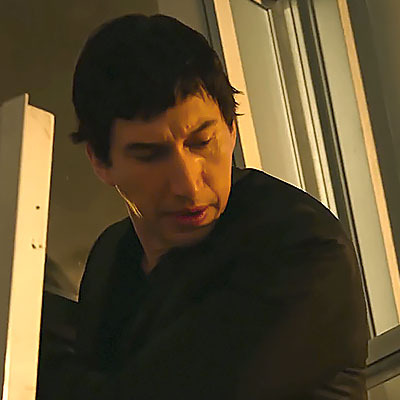

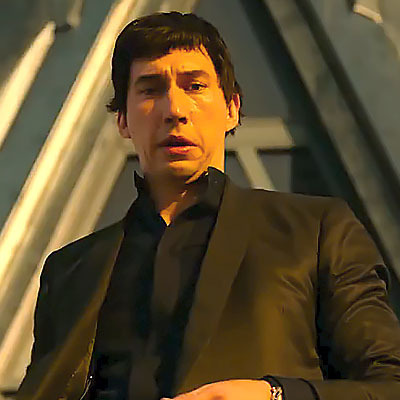

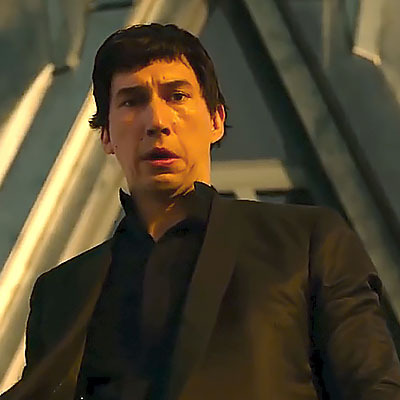
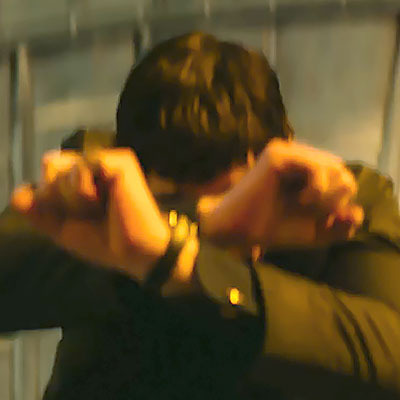

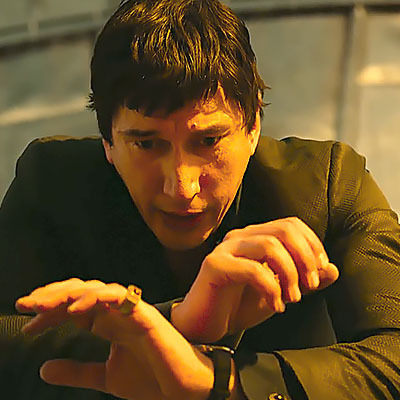
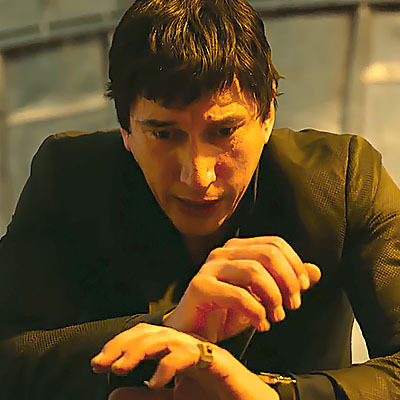
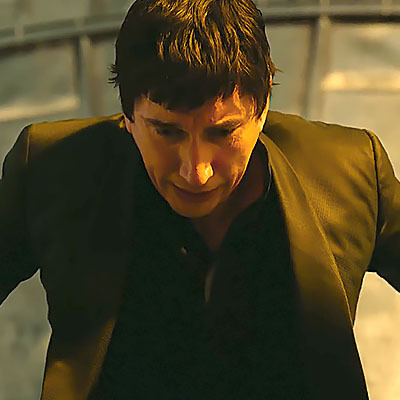


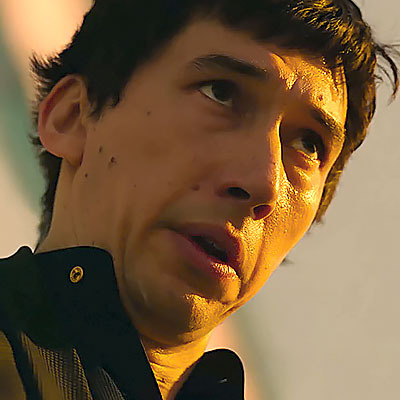

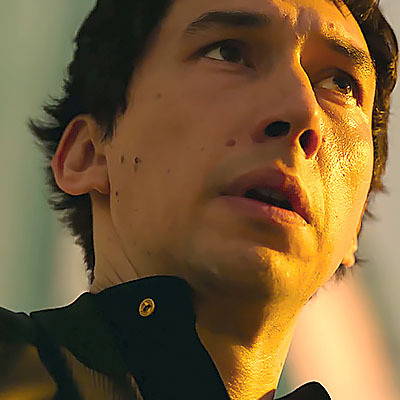

Caesar Catalina - Megalopolis, 2024
#icons#caesar catalina#caesar catalina icons#megalopolis#megalopolis icons#megalopolis 2024#adam driver icons#adam driver#francis ford coppola megalopolis#francis ford coppola movies#francis ford coppola#film#film icons#films icons#movies icons#cinema icons#filmes icons#filmedit#moviedit#cinemaedit#filmeedit#movieedit#icon#twitter icons#random icons#icons without psd#coppola megalopolis#coppola movies
23 notes
·
View notes
Text

MEGALOPOLIS (2024)
Starring Adam Driver, Giancarlo Esposito, Nathalie Emmanuel, Aubrey Plaza, Shia LaBeouf, Jon Voight, Laurence Fishburne, Kathryn Hunter, Dustin Hoffman, Talia Shire, Jason Schwartzman, Grace VanderWaal, Chloe Fineman, James Remar, D. B. Sweeney, Isabelle Kusman, Bailey Ives, Madeleine Gardella, Balthazar Getty, Romy Mars and Haley Sims.
Screenplay by Francis Ford Coppola.
Directed by Francis Ford Coppola.
Distributed by Lionsgate. 138 minutes. Rated R.
Legendary director Francis Ford Coppola’s passion project has been about 40 years in the making. Despite the fact that the guy has helmed some of the great films of all time – The Godfather, The Godfather Part II, Apocalypse Now, The Outsiders, Peggy Sue Got Married, Bram Stoker’s Dracula, etc. – no studio had been willing to put their support (and their money) behind Megalopolis.
Therefore, the filmmaker decided to make it himself, spending over $100 million of his own money so that he could have complete control of the film. And this is after he nearly destroyed his entire career and trashed his studio 42 years ago by sinking all of his money into the historic bomb One From the Heart and he swore he would never, ever do that again. In fairness, I always have kind of liked One From the Heart and it has gotten a better reputation over time. Also, Coppola has been mostly financing his films in recent years through sales from his popular vineyard, in fact he sold the vineyard to get the money to make Megalopolis.
He even uses the idea as the tag line for the movie poster: “If you can’t see a better future, build one.”
So, here is Coppola’s mega-opus – and quite probably his last film. Coppola decided to pull out all of the stops, and damned if he hasn’t. This film is completely Coppola’s baby, and he has complete control, for better or worse. He spent a ton of money and a ton of time on it, and he was going to make it his way. On the plus side, Megalopolis looks stunning. It is full of fascinating sets, props, effects and massive, epic scenes.
Too bad that the storyline makes little to no sense, that dialogue is stilted and hackneyed and some very talented actors make some very questionable acting choices. (I assume that they were directed that way by the auteur, but it doesn’t make it any less jarring to watch.)
Megalopolis is supposed to be – I think – Coppola’s expose of corporate greed and politics and his wish for a purer, more artistic and loving world. And those things are definitely there, front and center, but they are at service of such a complicated and honestly kind of ridiculous story that they become melodramatic and cartoonish.
The Megalopolis of the title is New Rome, which is basically supposed to be a magic version of modern New York in an odd alternative timeline where the old Roman Empire never fell.
The film basically revolves around three families (although it has a cast of dozens) who are fighting for control of New Rome.
The hero – or as close as this film comes to a hero – is Cesar Catalina (Adam Driver), a city planner who is trying to use magic to create his own Utopia. He can stop time and create things through pure will because… well I don’t know how, he just can. It’s not like Coppola has to come up with some kind of an explanation for his hero’s superpowers (although, yeah, really, he should).
Because Caesar is pushing for pure change and beauty, he runs afoul of the slightly corrupt Mayor Franklyn Cicero of New Rome (Giancarlo Esposito), who doesn’t like the man’s fresh idealism, or the fact that he is sleeping with the Mayor’s daughter Julia (Nathalie Emmanuel).
And finally there is commerce, with elderly banker Hamilton Crassus III (Jon Voight), his scheming wife Wow Platinum (played by Aubrey Plaza, and yes, that really is the character name) and his trans, rabble-rousing wannabe street politician grandson Clodio Pulcher (Shia LaBeouf) trying to exert their will on the city.
Clodio and Cesar are also cousins, and Wow was Cesar’s former mistress, just to show how incestuous this all gets. (I won’t even get into Clodio and Wow’s affair… oh, wait, I guess I just did.)
All of this leads to some highly over the top melodrama over the fight for the city, with some spectacular brawl scenes and some truly insane (in a good and bad way) world building. And then, for no particular reason, a character will recite a whole Shakespearean soliloquy, just because they can.
Well, Megalopolis is finally here, and good for Coppola for getting it made after all these years. And good for him for not leaving a thing that he wanted to try undone, this truly, for better or worse, is a magnum opus. But I’m afraid Francis Ford Coppola is in for another critical and financial drubbing. I have to hope that this is not the film that this great director goes out on. However, if he does, then he goes out on his own terms.
Jay S. Jacobs
Copyright ©2024 PopEntertainment.com. All rights reserved. Posted: September 27, 2024.
youtube
0 notes
Text
January 28th, Casa Grande
Played our first pickelball round robin in a week. Windy but nice and we played decently.
Went over to friends for Caesar salad dinner before heading over to the Hall a d Oates concert which was very good.
This week we start getting the rig ready for travel as we are in Catalina state park later this week. A short trip to exercise the motorhome (and have some fun).
0 notes
Text
Gaius Julius Caesar, having his hairs plucked out with tweasers:
Gotta look like a Snacc before you Attack
#julius caesar#caesar#classics#Queusque tandem abutere catalina patientia nostra#tagamemnon#ancient rome#ancient history#rome#lingua latina
5 notes
·
View notes
Text
Chapter 66: Convincing the Boni (Pt. 1)
Having taken the note to Hortensius shortly after sunrise, we waited uncomfortably for a response. It was well after the seventh hour before a response came, summoning Cicero to the infamous and palatial home of Lucullus outside the gates of Rome. Of course, I accompanied him, since I was the one who took down the transcript to begin with.

Lucullus’ home was a massive villa of whitewashed stone and marble that had become synonymous with excess to everyone in Rome. While he had been a successful general, Lucullus was now a bitter old man who kept mostly to himself. Catulus, Hortensius and the rest of the boni did not usually associate with the old general, but his money, power and prestige were undeniable, so it wasn’t surprising they would include him in their counsels.

Led inside by Lucullus’ steward, an Arab called Malek, I was awed by the scale of the residence, which echoed our footsteps as we walked through marbled halls past gilded statuary. Indeed, the home of Lucullus was such a statement of wealth that it struck Cicero as being in very poor taste.

Finally, we entered a spacious room where our host waited. Lucullus, his hair now grey and thin, was joined by Catulus and Hortensius, along with Marcus Aemilianus Scaurus Princeps Senatus and Lucius Caecilius Metellus, whom Cicero hadn’t seen since their encounter in Sicily.
“Good, you’re here,” Hortensius said. “Let’s begin, gentlemen.”

Catulus faced Cicero, his face a mask of disdain.
“First of all, I want to know how you obtained this transcript,” he said. “If I’m to take seriously this effort to smear several well-respected members of the Roman senate, I need to be certain of its veracity.”

“Agreed,” Metellus said, suspiciously. “It’s much too detailed to be done from memory. Whoever was there would have had to been a meticulous note-taker – in fact I don’t believe it would be possible to track such a conversation with accuracy.”
Cicero nodded to me. I sat down at a desk in the back of the room and began to take notes.

“I can vouch for the veracity of the transcript because I had ears in the room – those of my secretary, Tiro,” he said, motioning to me.

“And how did you get a man into the room during this most secret of meetings?” Scaurus asked. “I would assume they would have ejected anyone known to be associated with an enemy. Especially you!”
The others laughed.
“Perhaps, but I had assistance from an inside source,” Cicero said.
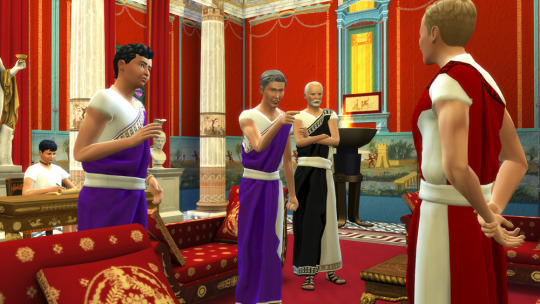
“Then I demand to know who,” Catulus said, rising. “I don’t trust anything you say, Cicero. You have proven to me time and time again that you are nothing but an ambitious nothing from Arpinum, and to take your word over that of Catalina or Crassus – or even Caesar, for that matter – will take much more than the word of a slave. I need proof of his abilities and the identity of your agent in Crassus’ household.”
“Tiro?” Cicero called softly.

I stood and read out the conversation that had taken place in its entirety, while the patricians stood stunned.
BEGINNING | PREV | NEXT
#ts4 simblr#simblr#ts4 story#historical simblr#ts4 historical#ancient rome#marcus tullius cicero#enlisting the boni#the doubts of Catulus#Tiro's gift#chapter 66 part 1#convincing the boni
14 notes
·
View notes
Note
What are their go-to salad dressings? What kind of salads do they like? Preference for lettuce and veggies? I know you like the food headcanons so I was trying to come up with one! 🥗
Preferred Type of Lettuce/Greens:
Romaine - Lexaeus, Larxene
Iceberg - Xaldin, Roxas
Radicchio - Marluxia, Xemnas
Arugula - Xigbar
Watercress - Lexaeus, Xigbar
Kale - Marluxia, Larxene
Spinach - Xemnas, Marluxia, Luxord
No Greens, just cucumbers and tomatoes - Xion
-
Favorite Dressings:
Oil and Vinegar - Xemnas
Honey Mustard - Lexaeus
Thousand Island - Xaldin
Caesar - Vexen, Zexion
Ranch - Xion, Roxas
Italian - Larxene, Xigbar
Raspberry Vinaigrette - Marluxia
Balsamic Vinaigrette - Demyx
Catalina - Saix
Roquefort/Blue Cheese - Luxord
Cilantro Lime Dressing - Axel
Preferred Salads: x
Note: Apparently, tumblr changed their rules again to only allow 10 images per post. This was going to have images of each salad, but it wouldn't allow it. Yikes.
Xemnas - Caprese Salad - Sliced mozzarella. Sliced tomatoes. Sweet basil. Olive oil. Salt.
Xigbar - Israeli Salad - Finely diced tomatoes, cucumbers, onions, (optional) parsley, and either bell peppers or chili peppers are typically dressed with olive oil and lemon juice.
Xaldin - Greek Salad - Tomatoes, cucumber, onion, feta cheese, olives, salt, origins and olive oil. Sometimes bell peppers but never, ever, lettuce.
Vexen - Nicoise Salad - anchovies, olives, tomatoes, eggs, garlic, fava beans, capers, and basil.
Lexaeus - Chef Salad - hard-boiled eggs, one or more varieties of meat, tomatoes, cucumbers, and cheese, all placed upon a bed of tossed lettuce or other leaf vegetables.
Zexion - Caesar Salad - lettuce, croutons, parmigiano, eggs, garlic, lemon, classic caesar dressing
Saix - Tabbouleh - Chopped parsley, tomatoes, mint, onion, soaked bulgar, olive oil, lemon juice, salt and pepper.
Axel - Southwest Salad - lettuce, corn, tomatoes corn chips, avocado, black beans, onions, and a southwest dressing.
Demyx - Gado, Gado - eggs, tempeh, tofu, green beans, garlic, bean sprouts, potatoes, peanuts
Luxord - Cobb Salad - Chopped salad greens, tomato, crispy bacon, grilled or roasted chicken breast, hard-boiled eggs, avocado, chives, Roquefort cheese and red wine vinaigrette.
Marluxia - Cucumber, Basil, and Watermelon Salad - watermelon and mango with flavorful add-ons like ginger, lime, cilantro, and peanuts
Larxene - Fattoush - Pita Bread, mint and parsley, lettuce, peppers, cherry tomatoes, cucumbers, radish, onions, olive oil and lemon juice.
Roxas - Fruit Salad - kiwi, apples, strawberries, pineapple, grapes, blueberries, raspberries
Xion - Poke - small pieces of fresh and raw fish or seafood, sweet onions, garlic, shallots, scallions, sesame seeds, seaweeds, candlenuts, limu (brown algae), soy sauce, honey, sesame oil, red pepper flakes, and Hawaiian sea salt
25 notes
·
View notes